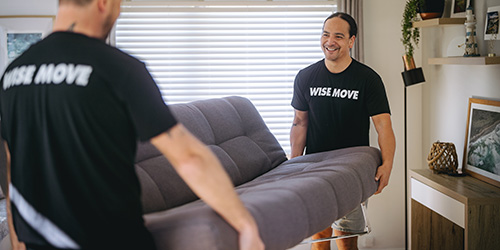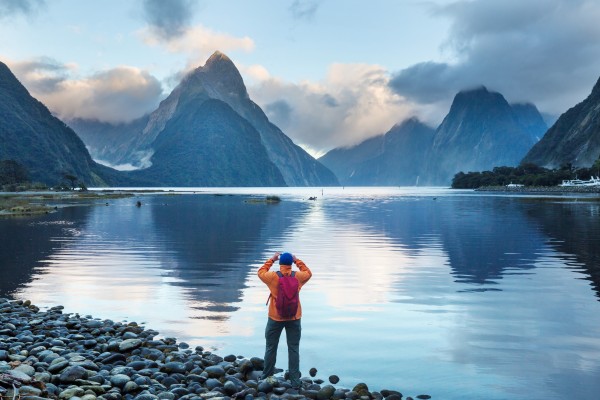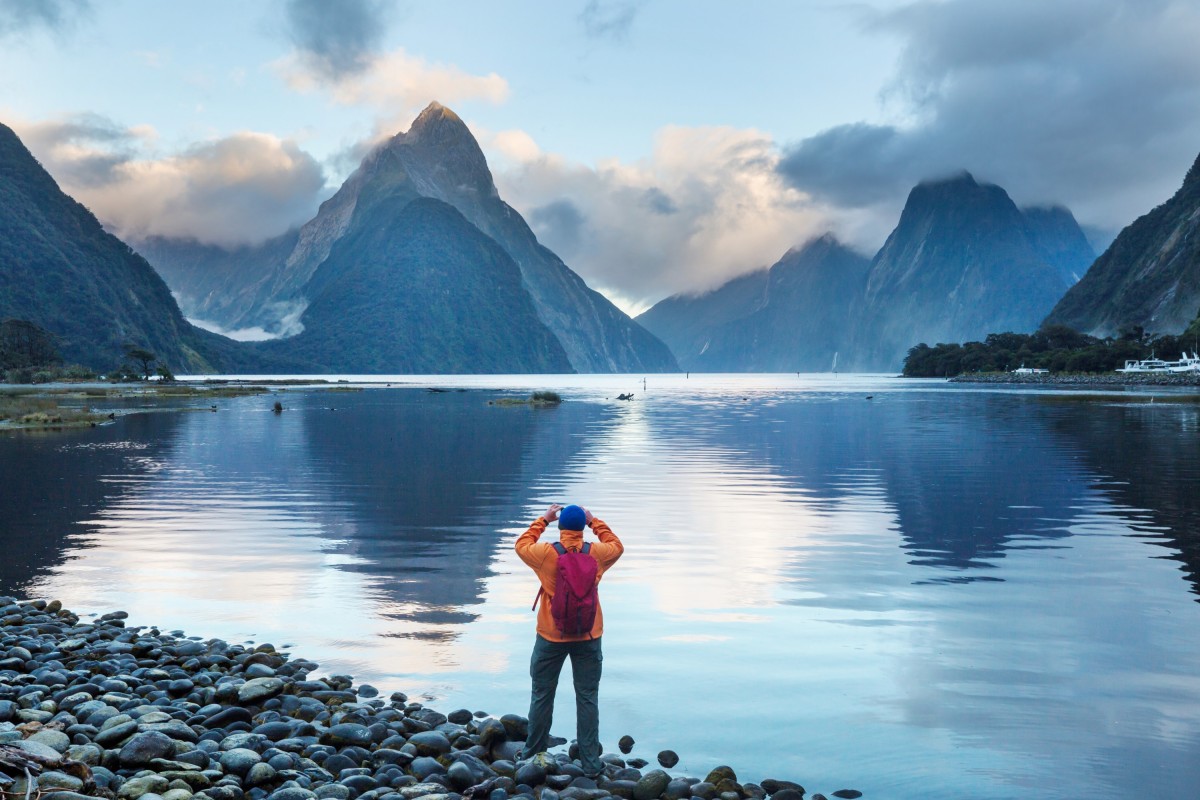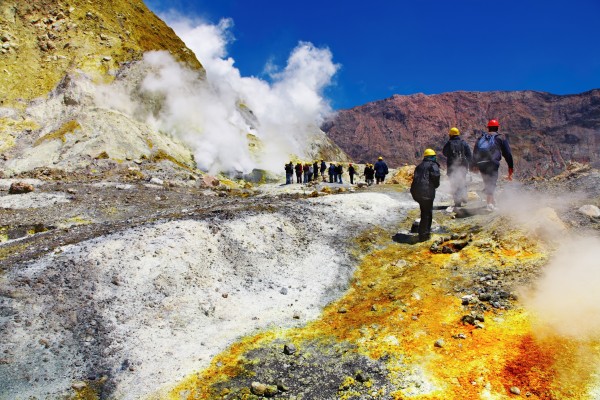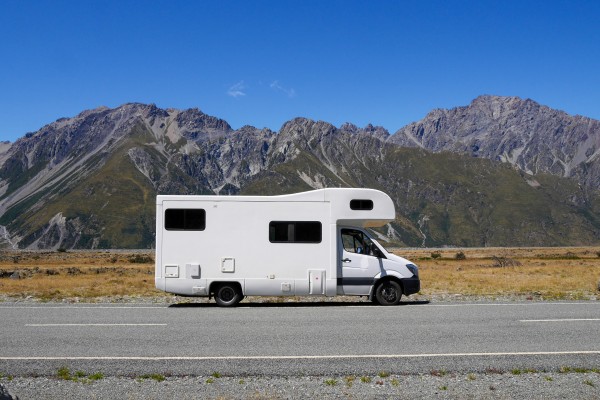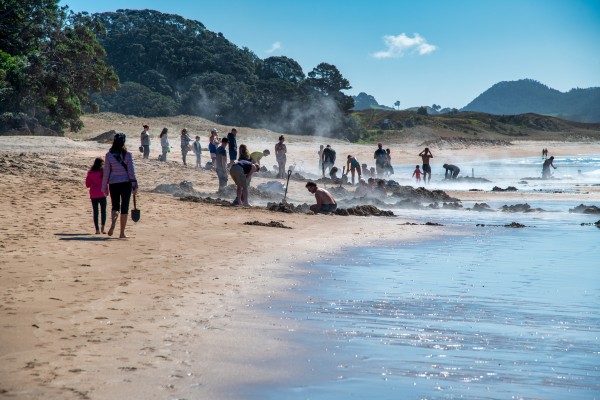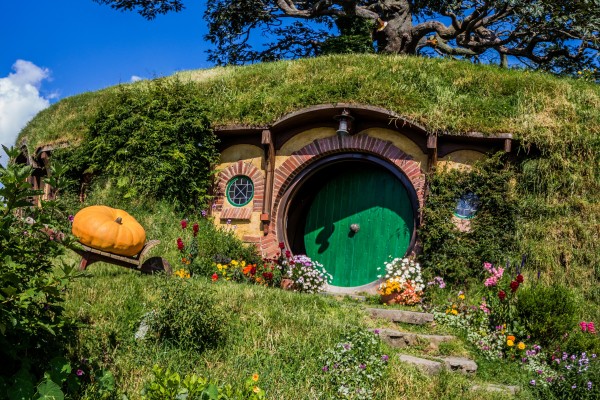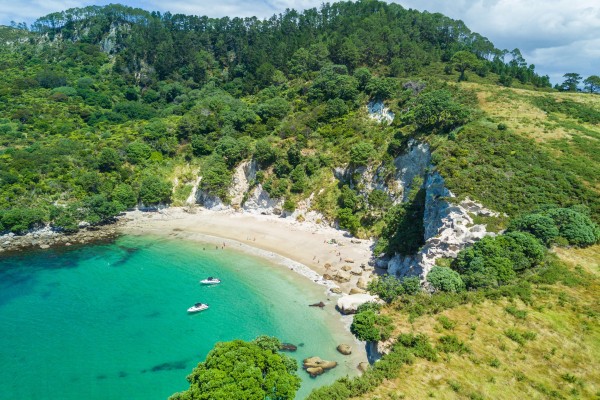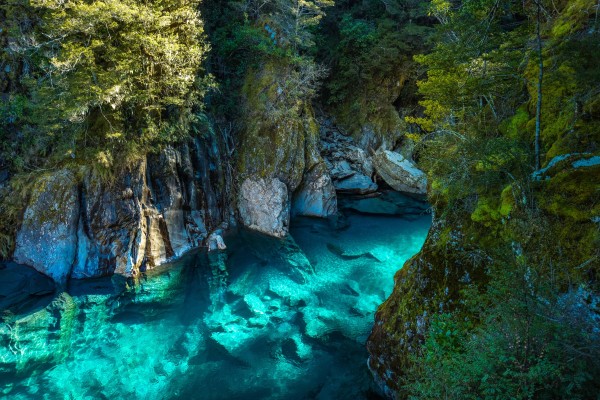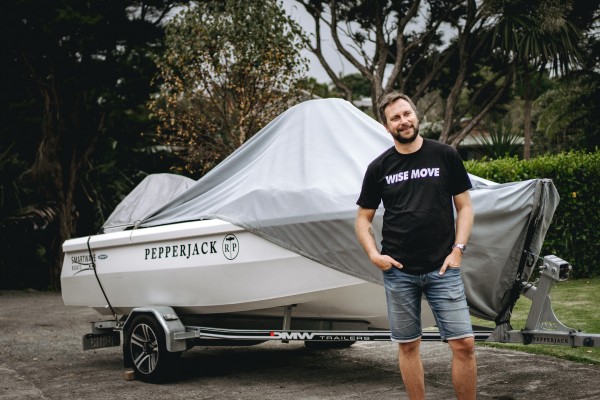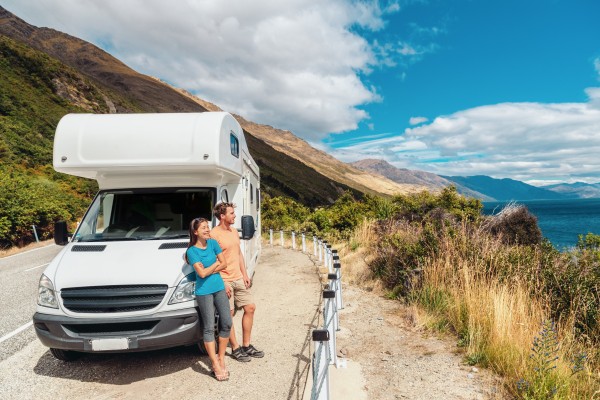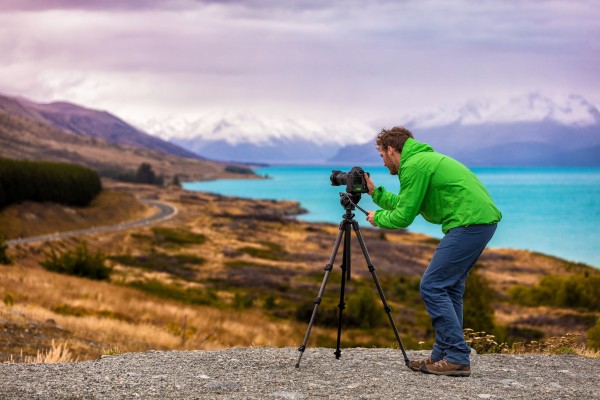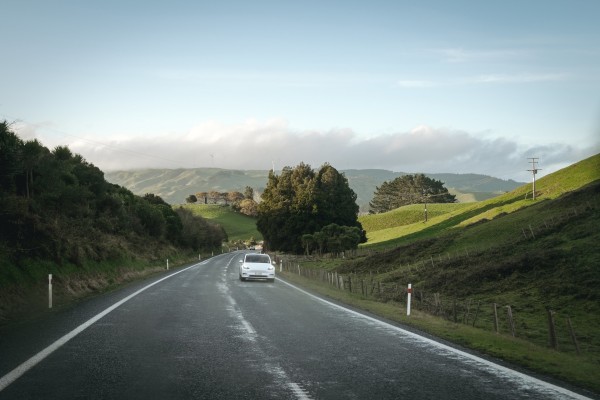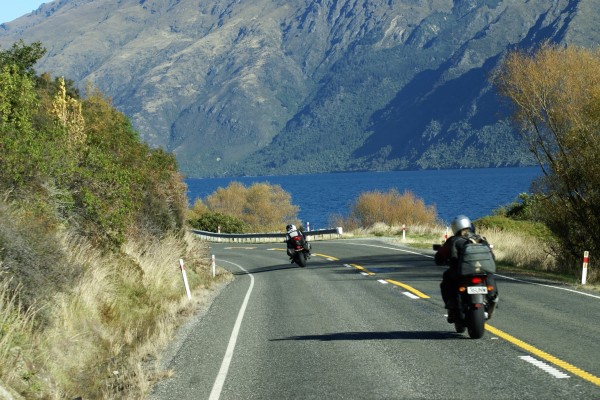Outdoor safety: What to know before hiking in New Zealand
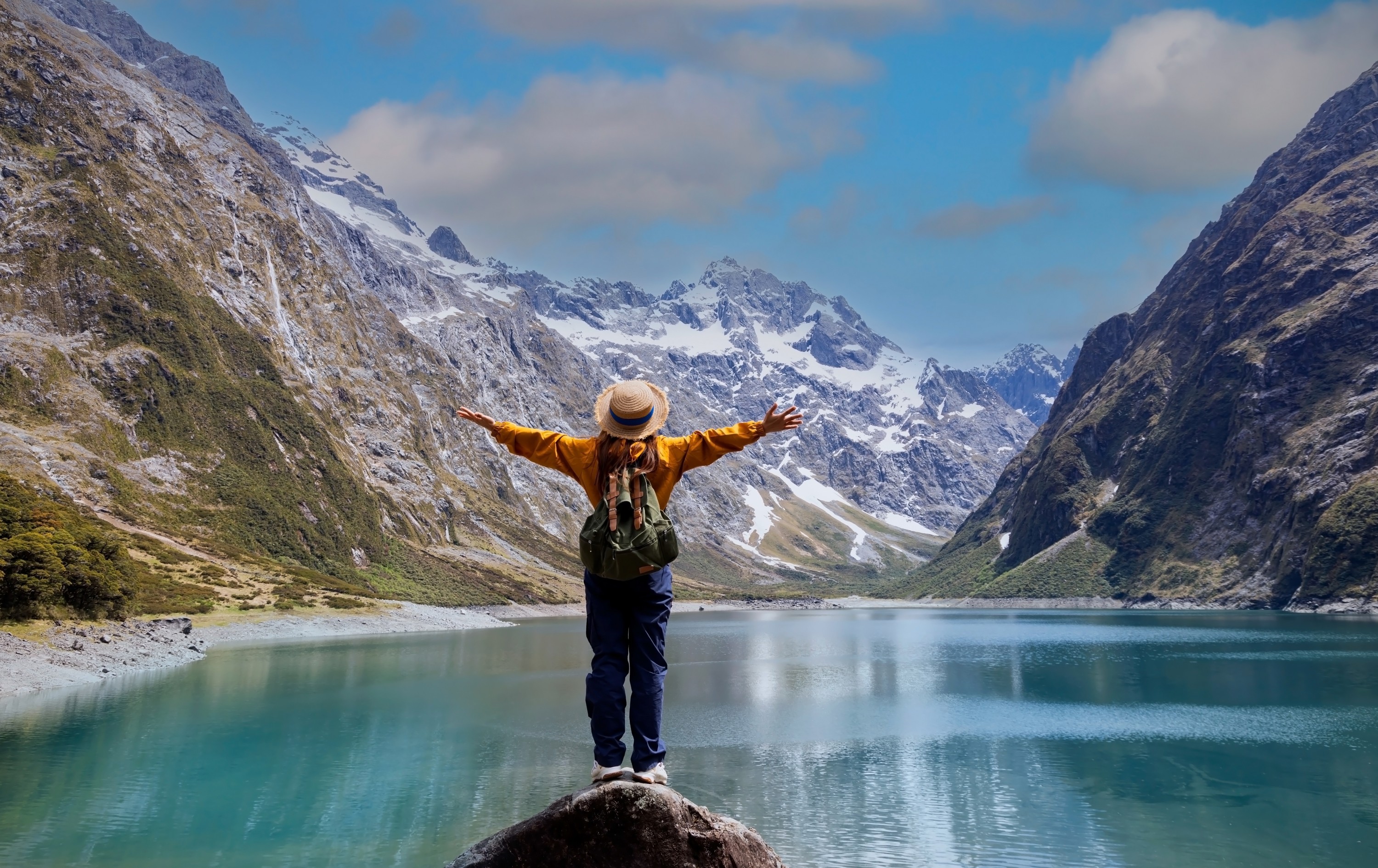
New Zealand is one of the safest countries in the world to explore. With its low crime rate, friendly locals and small population, it’s a welcoming place for tourists and immigrants alike.
There is one aspect of the country that people still need to prepare for, and that’s spending time outdoors. Whether you’re travelling to New Zealand to camp, hike or spend time at sea, make sure you’re properly equipped for the weather.
Why do I need to be prepared for the outdoors?
New Zealand is made up of islands which can make the local weather somewhat unpredictable. What you can count on is experiencing several seasons in one day. Although New Zealand’s outdoors is relatively accessible, there are parts of the country that are more isolated — especially hiking trails in our National Parks.
It’s not uncommon for inexperienced hikers to get into trouble in the great outdoors. It’s important that you have the right clothing, equipment and a safety plan in place in case anything goes wrong.
What to know before you hike in New Zealand
There are five main principles you need to know before setting off on an outdoor adventure in New Zealand.
1. Plan your trip
Whether you are visiting New Zealand to do a Great Walk or are living here and embarking on a day trip, thoroughly planning your trip is always a good idea.
Where are you going?
Planning your trip sounds simple, but you should include a wide range of factors.
-
Know the geography of the land. Will you need hiking boots, or are sports shoes sufficient? Will you be crossing any rivers or dealing with difficult terrain?
-
Know how you are getting there. Factor the drive (or transportation) to and from your destination into your trip, and make sure you have enough hours of daylight to get in and out.
-
Know how long your excursion will take. It’s important to factor a realistic walking time into your hike and to give yourself enough time for rest or to stop to look at the scenery.
-
Know if your phone will work. Mobile phone coverage can be limited when you are on a walk in the bush. Consider how far your group may have to travel to raise the alarm if something goes wrong.
Who are you going with?
Find out the level of difficulty of the hike you are going on. Don’t underestimate these recommendations. Some of New Zealand’s hikes are difficult and should only be attempted by people from the backcountry or those with Alpine experience. You can find most walks on the Department of Conservation website. Assess the fitness level of your group before going.
-
How experienced and fit is your group? Make sure the walk is right for the least experienced person in your group. This will ensure everyone on your trip has a good time and that you can complete the walk in a good timeframe.
-
Does your group have any medical requirements? Make sure that anyone who requires medication or access to something like an epi-pen has one on hand. You should also assess whether the trip is appropriate for anyone with specific medical concerns and what you’ll do in a medical emergency.
-
Does everyone want to go on the trip? Don’t just assume that a hike is suitable for your group. Make sure each person understands the terrain and the level of difficulty before you go. Some people may have old injuries that make steep ascents difficult or they may just feel uncomfortable hiking in the backcountry.
-
Are children coming? If children are coming make sure you adjust the trip to the abilities of the children. Long hikes can be difficult for small kids!
-
Does everyone have the right equipment? Does your group have multiple layers of clothing including a waterproof outer shell. You’ll also need appropriate footwear, water, sunscreen and snacks depending on how long your trip is.
2. Tell someone where you are going
Part of preparing for a safe trip is telling people your plans. This is especially important if the trip you are going on is impromptu.
-
Tell someone who you trust. Text or call someone before you leave to tell them where you are. Give specifics about what walk you are going on (the entrance and final destination) rather than sharing the general area.
-
Tell them when to expect you back. Tell them your expected time of arrival and what time you’ll definitely be back by. If anything changes beforehand (like the destination or what time you end up leaving, keep them updated).
-
Leave them a plan to use in an emergency. If they can’t contact you by the agreed-upon time, they should try texting others in the group. Next, they should try contacting someone else in the group’s emergency contact person (you’ll need to leave these numbers with them). If no-one can make contact, they should call the police on 111 and report the group missing.
3. Check the weather
New Zealand might not have bears, mountain lions or other predators you need to watch out for, but that doesn’t mean you can’t get into trouble on the trail. Always check the weather before you leave for a trip.
-
Check the Metservice weather report for the area you are going to. Keep a look out for any serious weather warnings. Do not take these lightly. Heavy rain can cause flash floods and snow in alpine areas can make it difficult to stay on the trail.
-
Check the mountain and parks section on Metservice. They often have warnings specific to the area, which can be more accurate. You should also check the DOC website to make sure the trail is open and doesn't have any alerts related to safety.
-
Pack the right clothing. Even on a nice day, the weather can change. Make sure you are prepared for sunshine, rain and wind so that you’re protected from the elements. Take a backpack with you and wear layers. That way, you can layer your clothes on and off as you walk.
4. Know your limits
Knowing your limits extends to both your physical capabilities and how well-equipped you are. Make sure you are making decisions that are for the good of the whole group.
-
Stay together. If you’re going on a walk as a group, walk together. Take note of how each person is feeling throughout the day so that you notice if anyone is injured or feeling unwell.
-
Pace yourself. If you’ve planned your trip correctly, you should be setting an achievable pace throughout the day. Don’t rush. Part of the joy of walking in New Zealand is seeing the scenery.
-
Stay alert to your surroundings. This includes people and the surrounding environment. If the weather starts to change or someone in your group is getting cold or you don’t recognise where you are, turn back.
-
Take care at river crossings. If you’re not experienced with river crossings, turn back, pick an alternative route or wait until someone more experienced comes along to cross with. Never attempt a river crossing if you’re alone or not feeling confident.
5. Take the right supplies
Your clothing and footwear choices should be suitable for the type of walk you’re going on. If you’ve packed for a one-hour stroll and have the opportunity to carry on for a few more hours, think about whether you are actually prepared for a longer hike.
-
Wear the right footwear. Sport shoes are great for easy strolls but if you’re going on a walk that’s any longer than a few hours you should wear hiking or trail shoes. These have more ankle support and more grip on the soles.
-
Bring layers. You should have an outer layer that stops the wind and is also waterproof. Thin layers are best as they keep you warm and are easy to pack.
-
Pack for all weather. Even if it’s not going to rain, you should pack a rain jacket. New Zealand’s weather (especially in a National Park) can change quickly.
-
Wear breathable material. Wear athletic gear or proper hiking clothing. These garments are breathable and help to keep you cool when it's hot. A lightweight outer layer will also keep you warm and protect you from the wind.
-
Keep your core warm. A base layer close to your core will keep you warmer than four or five bulky layers that can make you sweat. You can wear a base layer (like a thermal singlet, an insulating layer (a long or short sleeve t-shirt made from breathable material) and an exterior layer (a windbreaker or thin down jacket).
-
Take food and drink. Take enough water and snacks or food for the duration of your trip. You’ll need about a litre of water per person, but two is best.
-
Take the right equipment. Take a backpack with you so you’re not limited by whatever equipment, tools or accessories you need to stay safe.
What do our customers say?





For every (wise)move
